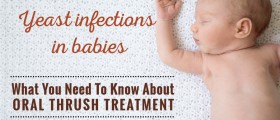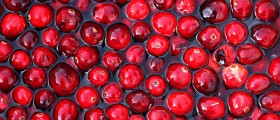
Pregnancy is a risk factor for thrush all in itself, due to the sugar glycogen which candida albicans can feed on. If you have gestational diabetes, or have recently taken antibiotics, your odds of getting thrush also go up. Clothes that fit too tightly, especially if they are made of synthetic materials, also provide an excellent environment for thrush. It is therefore best to avoid them. Cutting out overly scented shower gels can help prevent thrush. Although thrush, also called a yeast infection, is not a sexually transmitted disease, it can be passed on by an infected person during sex.
Natural remedies for thrush include yoghurt or baking soda sitz baths. Over the counter remedies for thrush do exist, but they may not be safe for pregnant women, so if you are intending to try self-care before seeing a doctor (or your midwife), try natural remedies. Many doctors are hesitant to prescribe medications for thrush in the first trimester, but later on in your pregnancy prescription drugs may also be a good option for you to clear up thrush. Still, it is not uncommon for women to have recurrent thrush throughout their pregnancies.
- www.nhs.uk/common-health-questions/pregnancy/can-thrush-harm-my-baby-during-pregnancy/
- www.cdc.gov/std/tg2015/candidiasis.htm
- Photo courtesy of CDC/Dr. William Kaplan by Wikimedia Commons: upload.wikimedia.org/wikipedia/commons/thumb/d/da/Candida_albicans_PHIL_3192_lores.jpg/1280px-Candida_albicans_PHIL_3192_lores.jpg
















Your thoughts on this
Loading...